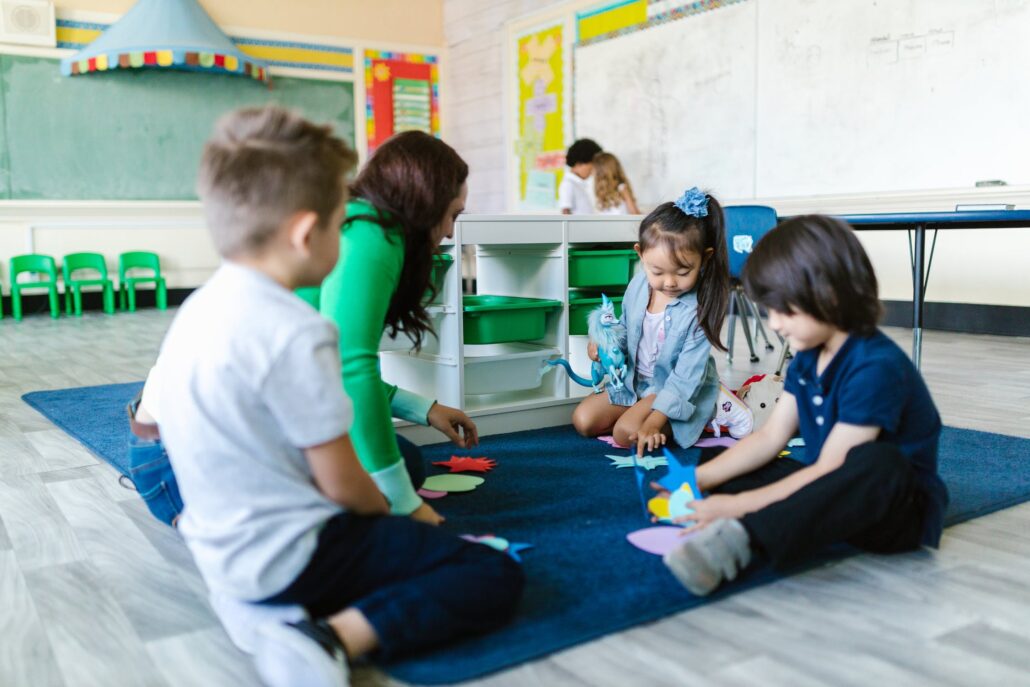
Ethical principles of the special education profession
Teachers and professionals are guided by professional standards of practice and policies in ways that respect the characteristics and needs of individuals with special needs and their families through a commitment to upholding and promoting the ethical principles of the special education profession through:
1- Raising high expectations and improving the quality of life for individuals with special needs through methods that respect their dignity, and their culture, and their language, And their backgrounds.
2- The presence of a high level of professional competence and practice in the field in serving individuals with special needs and their families.
3- Promoting the participation of individuals with special needs in school and society.
4- Practicing teamwork when providing services to individuals with special needs.
5- Developing relationships with families of individuals with special needs based on mutual respect and ensuring that families and individuals with special needs are effectively involved in educational decision-making.
6- Those working in the field of special education must use educational and professional evidence and knowledge when practicing at work.
7- Ensuring the physical, psychological and moral safety of individuals with special needs.
8- Employees must avoid any practice that affects or harms individuals with special needs.
9- The work must be based on professional policy standards and regulations.
10- We must work to improve educational outcomes and outcomes for individuals with special needs and work to improve educational inputs.
11- Active participation in professional improvement and development in the field of special education.
12- Contributing to disseminating the correct professional knowledge and skills related to the field of special education.
What are the standards based on the ethical principles of the special education profession and what are the professional practices of specialists and workers in the field of special education?
Teaching and assessment
Special education specialists
1-The presence of an individual educational plan for students to improve educational outcomes for individuals with special needs.
2- Using effective educational practices in appropriate professional preparation for the capabilities of individuals with special needs.
3- Use evaluation periodically to measure the progress of individuals with special needs in the educational process.
4- The educational environment must be stimulating and effective in terms of meeting individual needs and raising the level of self-esteem.
5- Active participation in using educational materials that suit the individual needs of the student.
6- Evaluation procedures must be appropriate in terms of accuracy, language and culture.
7- Behavior modification procedures must be based on scientific evidence when applied to individuals with special needs.
8- When promoting positive behaviors, they must be consistent with behavior modification procedures when applied.
9- Avoid using corporal punishment with individuals with special needs.
10- Unprofessional and unethical practices must be reported to the responsible supervisor.
11- Recommending the special education services necessary for an individual with special needs to receive appropriate education.
Professional qualifications and employment
Special education specialists
1- When searching for work, the special education specialist must present himself in an ethical and legal manner regarding his experiences and knowledge.
2 – When providing special education services, the individual must be qualified through professional accreditation.
3- Training must be within the limits of professional knowledge and skills, and support and advice can be requested when needed from persons authorized to do so.
4- When considering leaving work, the individual must provide notice to the place in accordance with written policies and contracts.
5- The individual must adhere to the written contract and the terms of appointment written in the contract.
6- Appropriate teaching, education and support must be provided by the teacher.
7- Professional help should be sought in cases where personal problems interfere with job performance.
8- The statements made by employees are not interpreted as official statements from the responsible party.
9- Documenting and informing officials of deficiencies in sources and proposing appropriate corrective actions.
10- Freedom from bias and discrimination when applicants apply for work, including complaints procedures at work.
11- Professional problems must be resolved within the workplace using established procedures.
12- Search for clearly written information about duties and responsibilities, which are considered a condition for employment.
13- It is expected that some responsibilities will be transferred between employees, Therefore, work must be based on mutual understanding and respect.
14- There must be reinforcement and support between general education programs and special education programs in terms of planning, development and evaluation.
15- There must be support and supervision of special education workers and special education programs by highly qualified individuals qualified in this.
16- Responsibilities in management and supervision must be clear for specialists in the field of special education.
Professional development
Special education specialists
1- Continuing professional development in developing knowledge, skills and professional culture, And make it a high level of professional competence.
2- Maintain knowledge of procedures, policies and laws associated with the practice.
3- The teacher must evaluate himself systematically and objectively for the purpose of continuous development and improvement of professional performance.
4- Ensure that the responsible party is informed of the adequacy of resources for effective professional development at the school level, either individually or collectively.
4- Participation in supervised field work in preparatory programs.
5- Participate in the process of professional guidance for other teachers whenever necessary.
Professional colleagues
Special education specialists
1- Practitioners must respect the skills and experiences of professional practitioners from the same field or from various other fields.
2- Striving in society to develop positive concepts towards individuals with special needs.
3- Cooperation between specialists in institutions to improve services for individuals with special needs.
4- Cooperation between specialists in public and private education and other employees in improving the results of serving individuals with special needs.
5- Intervene professionally when observing any illegal, unethical or offensive interventions for individuals with special needs.
6- Not participating or interfering in conflicts of interest.
Special education teacher assistants
Special education specialists
1- It must be ensured that the special education teacher assistant receives appropriate training in the tasks assigned to him.
2- Only the appropriate and prepared tasks must be assigned to the special education teacher assistant.
3- Information must be provided continuously to the special education teacher assistant about his performance in the tasks assigned to him.
4- The special education teacher assistant must be provided with adequate time and support from specialists regarding tasks and expectations.
5- Intervene professionally when the behavior of the special education teacher assistant is illegal and unethical and harms individuals with special needs.
Parents and guardians
Special education specialists
1- When communicating with parents, it must be appropriate to the cultural and linguistic background in a respectful and understandable manner.
2- Empowering parents of individuals with special needs and involving them in the process of planning and evaluating the educational process.
3-Mutual respect and maintaining privacy and confidentiality between the specialist and parents.
4- Helping provide educational opportunities to provide accurate and appropriate information to parents.
5- Parents must be informed of the educational rights and guarantees relevant to their children.
6- Practitioners must respect cultural diversity within the school and community.
7- Professional relationships with students and parents must be respected and engaging in non-professional relationships must be avoided.
search
Special education specialists
1- Avoid using the research with the intention of offending others.
2- Participate in research aimed at improving the learning outcomes of individuals with special needs.
3- The rights of individuals participating in the research must be protected.
4- Research results must be interpreted and published accurately.
5- Research and activities that may cause harm to individuals with special needs must be monitored and stopped.
6- Support scientific research that works to improve special education programs and learning outcomes for individuals with special needs.
Case management
Special education specialists
1- Student records must be maintained and high standards of privacy and confidentiality must be applied.
2- Appropriate preventive measures must be followed and the school must be assisted in providing due legal procedures.
3- Accurate data about students and programs must be provided to officials, specialists and parents.
4- The confidentiality of information must be maintained. Unless the information is disclosed under terms containing written consent that meet the requirements.
5- Participate in appropriate planning for the transitional sequence for individuals with special needs.
Non-educational support
Special education specialists
1- When performing non-educational support tasks, Such administration of medication must be done in accordance with the policies and instructions written on file where legal information related to the policy is provided and the professional responsibility for undertaking this task is disclosed.
2- Special education professionals may not be expected to routinely accept non-instructional support assignments.
Reference:
Ethical principles for the special education profession – Ethical Principles and Practice Standards | Council for Exceptional Children
